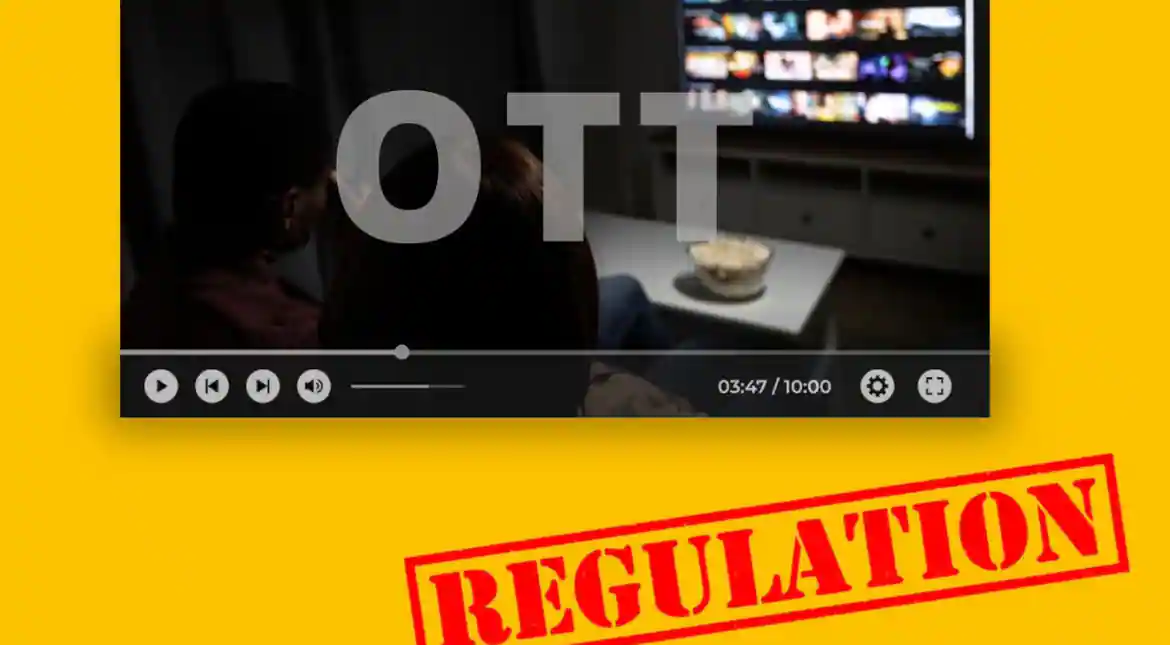Description

Copyright infringement not intended
Picture Courtesy: www.wionews.com
Context: The Broadcasting Services (Regulation) Bill 2023 is a legislative proposal that seeks to overhaul the existing regulatory framework for broadcasting services in India. The bill covers not only traditional cable and satellite television but also over-the-top (OTT) platforms and other forms of digital content delivery.
The Broadcasting Services (Regulation) Bill 2023
- The Broadcasting Services (Regulation) Bill, 2023 introduces comprehensive regulations that affect traditional broadcasters and extend to cover evolving digital platforms like OTT services.
Key aspects of the Bill
- Mandatory Registration and Scope: The Bill mandates registration for all broadcasting entities, including cable, satellite, terrestrial, and internet-based services, excluding certain authorized bodies. It brings internet-based services like IPTV and OTT under its purview if they meet specific criteria in terms of subscribers or viewership.
- Content Quality and Accessibility: It enforces adherence to Programme and Advertisement Codes for all forms of broadcasting services. These regulations extend to online news platforms operating as a systematic business. Accessibility guidelines for persons with disabilities are introduced, mandating measures such as audio descriptions, subtitles, and accessible applications.
- Self-regulation Mechanism: The Bill introduces a self-regulation regime, requiring broadcasters to establish Content Evaluation Committees (CECs) comprising members from diverse social groups. CECs will certify programs for airing, except for those specifically exempted by the government.
- Three-Tier Regulatory Structure: This structure involves operators' self-regulation, self-regulatory organizations for compliance and grievance resolution, and a Broadcast Advisory Council overseeing regulation implementation and making recommendations to the government.
- Inspection and Penalties for Non-Compliance: The government can conduct inspections without prior notice and seize equipment if violations are suspected. Penalties for non-compliance range from show removal to cancellation of registration, depending on the seriousness of the violation.
Concerns Raised
- Censorship and Freedom of Expression: Critics fear that the Bill's subjective terms and similarity to cable TV codes could limit free speech, journalistic expression, and creativity. They worry about overcompliance and self-censorship by online platforms.
- Excessive Delegation and Uncertainty: Concerns arise due to many provisions left to be determined by the government later, leading to uncertainties for stakeholders and potentially arbitrary rulemaking.
- Impact on Digital Platforms: Experts are concerned about the impact on the dynamic nature of the digital space, questioning how subjective terms like 'good taste' or 'decency' might limit creativity and expression.

Conclusion
- The Bill aims to modernize regulations, but concerns remain regarding its potential impact on freedom of expression, creativity, and the diversity of viewpoints, especially in the digital sphere. The subjective nature of the terms and potential executive control raise significant concerns among legal experts and advocates for digital freedom.
Must Read Articles:
REGULATION OF OTT: https://www.iasgyan.in/daily-current-affairs/regulation-of-ott#:~:text=The%20Telecom%20Disputes%20Settlement%20and%20Appellate%20Tribunal%20(TDSAT)%20ruling%20clarifies,as%20telecom%20services%20by%20TRAI.
REGULATORY MECHANISMS FOR OTTS: https://www.iasgyan.in/daily-current-affairs/regulatory-mechanisms-for-otts
DRAFT BROADCASTING SERVICES (REGULATION) BILL 2023: https://www.iasgyan.in/daily-current-affairs/draft-broadcasting-services-regulation-bill-2023#:~:text=Context%3A%20The%20Broadcasting%20Services%20
|
PRACTICE QUESTION
Q. What regulatory mechanisms are in place to oversee Over-The-Top Services (OTTs), and how do these mechanisms aim to ensure fair competition, consumer protection, and the overall integrity of the digital communication landscape?
|









